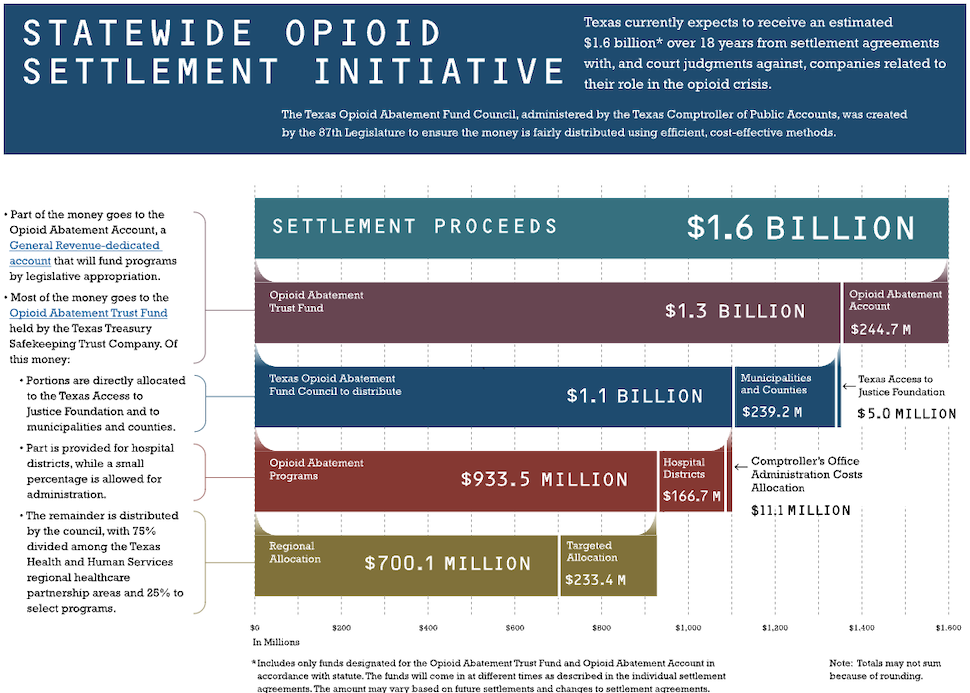The state of Texas will receive an anticipated $1.6 billion of roughly $54 billion in opioid settlement money being distributed to state and local governments nationwide, according to Strategic Partners Inc.
The state has created an Opioid Abatement Fund Council that will operate out of the Texas Comptroller’s office to ensure the funds are dispersed fairly. As of 2022, Texas already received more than $130 million and another $2.6 million in revenue owed during 2022 is yet to reach Texas.
Funds to be spent on treatment centers, recovery services, housing needs and more

[Grpahic: Texas Opioid Abatement Fund Council]
SPI said that opioid settlement funds are to be spent on projects that provide benefits to a continuum of care, but general guidance will allow revenue eligibility for many types of projects.
For example, it can be used to support development of new facilities, improvement of operations related to healthcare, recovery services, medication-assisted treatments in prisons, transitional housing needs, and treatment centers, SPI said.
The Austin-based business development services company said that state governments affected by the opioid epidemic were locked in intense litigation with pharmaceutical companies for years. Some of the pharma companies are among the most-powerful corporations in the world, SPI said.
According to the Centers for Disease Control, the first wave of the opioid crisis began with increased prescribing of opioids in the 1990s, with overdose deaths involving prescription opioids increasing since at least 1999. The agency said a second wave began in 2010, with rapid increases in overdose deaths involving heroin.
Settlements being allocated to tribal communities from three of the largest pharmaceutical distributors will add another $440 million for health services and other types of projects, the company said.
Money will come in installments over many years
The settlement money will come in installments over many years, said SPI, which provides services such as customized research, competitive analysis, strategy development, and political advocacy.
This funding will continue for nearly two decades, SPI said, and most states will receive a share of the settlement revenue.
To use the revenue, SPI said that public officials will be seeking private-sector partners, especially those able to provide planning services, project oversight, engineering and design, technology, site work, and equipment delivery.
![]()
Get on the list.
Dallas Innovates, every day.
Sign up to keep your eye on what’s new and next in Dallas-Fort Worth, every day.































